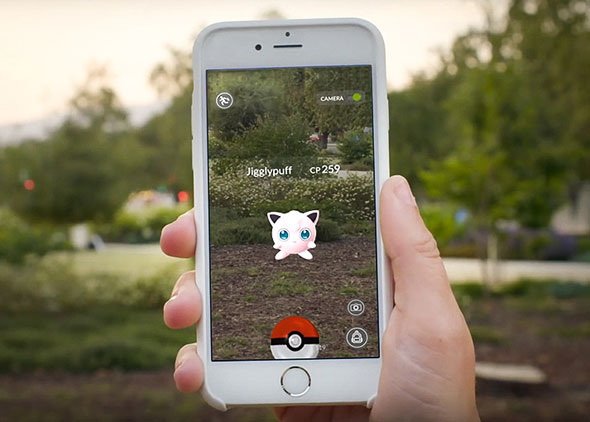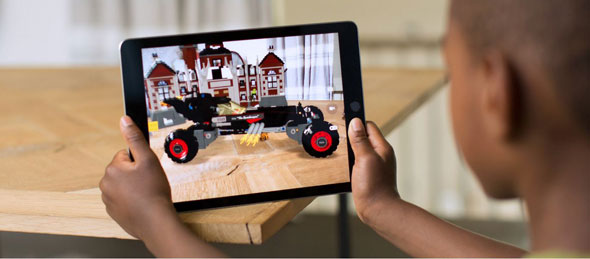


Pokémon Go is Dead...Long Live Augmented Reality!
Pokémon Go has been in decline for quite some time, but the interest in augmented reality is certainly on the increase.

Interest in augmented reality is on the increase, with the VR and AR maket to exceed 100bn by 2022 and with an estimated 800 AR companies worldwide, it’s an area that’s expanding rapidly.
When I think of augmented reality the mind immediately leaps to the short but extremely popular Pokémon Go phase. Whilst I’m sure there are still die-hard Pokémon Go fans roaming the streets, as with any new product over time, no one can deny that the interest has certainly diminished, and as of April 2017 Pokémon Go daily users had dropped by 23 million.
For anyone living on another planet last summer, Pokémon Go was a location based, free to play augmented reality game which allowed you to ‘hunt’ Pokémons and capture them using Poké Balls.

The game’s unique selling point was having to physically travel to hunt down the Pokémon, whilst having the Pokemon appear in your everyday space through your phone camera. News stories of the time boasted of the social aspect of the game as many people would gather in the same place to capture Pokémon. There were also some reports of the game helping people’s mental health, whilst many enjoyed the nostalgic element of the game as a throwback to a 90’s childhood collecting the cards.
Many have blamed the lack of features and technical glitches for the apps decline in users, the programme also received some negative press attention for car crashes and robberies where users were lured down alleys by promising Pokémon ready to be captured, only to be targeted by robbers.
Whilst the Pokémon Go creators tried to bring back the magic with some app upgrades and themed events such as Pokémon Halloween, with some scary Pokémon and extra points, this didn’t bring back the game to its former glory.
Although Pokémon Go might for now have reached its conclusion, Google searches for the term ‘Augmented reality’ are increasing year on year and there is still a buzz in the digital industry about AR, showing that the interest in AR and its different iterations is not dwindling.
Apple’s new ARKit is a prime example of the ever-expanding limits of AR, ARKit allows those with development skills to create their own augmented reality experiences on the iPad and iPhone. The range of augmented reality scenes that users have created, promoted on the ARkit Twitter feed, is truly impressive and varied. I personally like the practical kitchen measurer, no more tape measures! And the portal to another world, although the dancing robot is slightly creepy. However, make no mistake that this is not a user friendly quick build AR app experience, it’s aimed at developers with knowledge in the field, and so a very different premise from the Pokémon Go experience.

One would imagine that Facebook is hot on Apple’s tail and you wouldn’t be wrong. Facebook announced three months ago at a conference their plans to turn the camera app into a platform for people to build their own AR experiences. Although no real details were released, the fact that they say that any Facebook user can create their own AR experience suggests that you won’t need to be a developer to make this work for you. They’ve hinted that the AR experience will go way beyond the Facebook filters available currently and become truly customisable. The conference video shows AR filling up a living room with water, sand and then Skittles. Zuckerberg promised that the new AR experience would ‘bring people together’, but in what way it’s hard to discern.
Facebook has also said in the future there might even be AR contact lenses available, so you can change the world around you and presumably receive messages and take phone calls as well. This does rather bring to mind a chilling Black Mirror episode, ‘The Entire History of You’, that I’m sure fans of the show are familiar with! The social network aren’t they only ones heading down this path, last year Samsung patented a special contact lens which takes a picture whenever the user blinks so it isn’t much of a leap to imagine an AR contact lens. Although some might say the Samsung contact lens would result in lots of badly framed and, depending on how exciting your day is, boring pictures.
The idea of an AR or camera contact lens also raises the issue of privacy. Having a camera that other people can’t see will surely change the nature of social interactions, and is again something that the Black Mirror episode delves into, producing an atmosphere of paranoia and loneliness. While Snapchat confronted this issue head on with their Spectacles by including an LED that lights up when the wearer is recording, if Facebook is creating an AR app - and in the future contact lenses - which aim to ‘bring people together’ they’ll have to think carefully how exactly this is produced.

Posted 26 July 2017